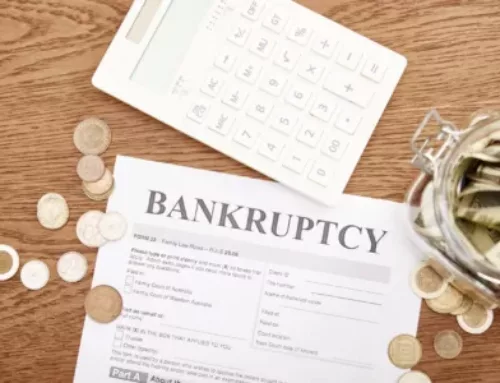Filing for bankruptcy can resolve your financial problems and help you get a fresh start at life. While bankruptcy filings used to be unpopular, more and more are considering it as a solution to their debt problems. A bankruptcy attorney can explain to you the specifics of each filing chapter and help you correctly file a bankruptcy petition.
Even if the bankruptcy procedure is complicated and long, it has several benefits. Bankruptcy proceedings help bankrupt individuals repay their creditors. Some types of debt can even be wiped out through bankruptcy discharge. If a debt is discharged, a filer will not have to pay off what is owed (with no fear of getting sued). Furthermore, if you are qualified to file for bankruptcy, you will be protected by the federal court.
One of the main reasons why individuals consider filing a bankruptcy petition is because of an automatic stay that takes effect immediately. This bankruptcy stay prohibits debt collectors from asking for payments. It also protects you from creditor harassment. It is generally applicable in all circumstances unless a creditor files a motion against it.
Bankruptcy law is complex and it is highly recommended to hire a bankruptcy lawyer to assist you: both on how to file and to better understand the bankruptcy process. Generally, bankruptcies are classified into two types: Chapter 7, or liquidation bankruptcy, and Chapter 13, or reorganization bankruptcy.
 If you are considering bankruptcy, you should be aware of the criteria for eligibility. With the different types of bankruptcy are different requirements. A means test is often used to decide whether an individual is eligible to file a petition in bankruptcy. Aside from a comprehensive list of all your creditors and total debt, filing bankruptcy looks into your monthly income (which will be compared to the state median income), living expenses, and monthly payments that you are required to make or are making, such as mortgage payment for car loans.
If you are considering bankruptcy, you should be aware of the criteria for eligibility. With the different types of bankruptcy are different requirements. A means test is often used to decide whether an individual is eligible to file a petition in bankruptcy. Aside from a comprehensive list of all your creditors and total debt, filing bankruptcy looks into your monthly income (which will be compared to the state median income), living expenses, and monthly payments that you are required to make or are making, such as mortgage payment for car loans.
In Chapter 7 bankruptcy filing, a debtor shall surrender his or her non-exempt assets to pay his or her total debt. The primary role of a trustee in bankruptcy cases is to arrange a meeting of creditors, where the debtor declaring bankruptcy is to answer questions from creditors. The trustee will then liquidate your assets and use the sales to pay any unpaid lender. A bankruptcy trustee also ensures that there is no debtor-creditor interaction.
By restructuring your finances and through a payment plan you negotiate for, filing bankruptcy under Chapter 13 will enable you to secure your personal property. This is why a Chapter 13 bankruptcy proceeding, is preferred by some people. You restructure your debts and reorganize your finances, including both unsecured and secured debts. This way, your repayment plan can stop foreclosure, repossession, and wage garnishment. As long as you regularly follow the debt-repayment plan and pay throughout the three to five years, you can wipe out all your debts.
When dealing with bankruptcy cases, it is important to get legal aid only from expert bankruptcy lawyers. You would not want to make errors in your filing and bankruptcy proceedings. Being honest when providing bankruptcy information is also a must, since you may be sued by the federal court if there are any discrepancies within the documents you provided. You may face costly fines and penalties for violating the bankruptcy laws.
If you want to stop wage garnishment and foreclosure, seek legal help from reliable bankruptcy attorneys. Contact us at Phoenix Fresh Start Bankruptcy Attorneys for a free legal consultation.








